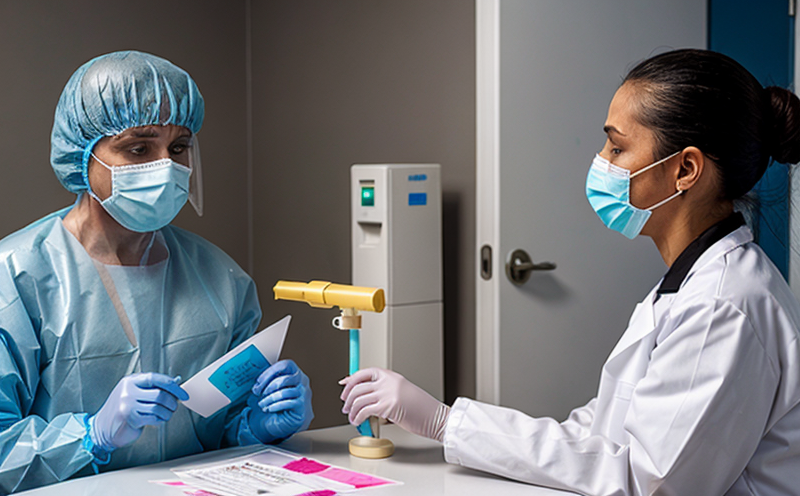Hepatitis A Virus Testing in Food Samples
Ensuring food safety is a critical aspect of maintaining public health and trust in the food industry. Hepatitis A virus (HAV) testing, particularly in food samples, plays an essential role in safeguarding against potential outbreaks and protecting consumers from infection.
HAV is a member of the Orthomyxoviridae family and can cause acute viral hepatitis. It is primarily transmitted through contaminated water or food, making it a significant concern for public health agencies worldwide. The virus can survive outside the body for extended periods, which underscores the importance of thorough testing protocols.
Our laboratory uses advanced techniques to detect HAV in various food samples, providing clients with reliable and timely results. This service is crucial for quality managers, compliance officers, R&D engineers, and procurement teams who need assurance that their products meet stringent safety standards.
The testing process involves several key steps. Initially, the sample undergoes extraction using a method compliant with international standards such as ISO 17295:2013 for food analysis. This ensures accurate detection of HAV without interference from other substances present in the sample.
Following extraction, the sample is subjected to nucleic acid amplification testing (NAAT), a highly sensitive method that allows for precise quantification of viral RNA. NAAT offers superior specificity and sensitivity compared to traditional PCR methods, enabling accurate detection even at low concentrations.
The use of NAAT also reduces the risk of false positives or negatives, which is vital for maintaining product integrity. Our laboratory personnel are trained to interpret results accurately, ensuring that any detected HAV levels are reported promptly. This rapid turnaround time allows clients to address any issues swiftly and efficiently.
In addition to detecting HAV, our testing service provides comprehensive support in understanding the implications of these findings for food safety practices. We offer detailed reports that include recommendations on corrective actions if contamination is detected, helping stakeholders implement effective mitigation strategies.
Scope and Methodology
The scope of our HAV testing service encompasses a wide range of food items, including raw meats, poultry products, fruits, vegetables, and processed foods. This broad coverage ensures that all potential sources of contamination are addressed comprehensively.
The methodology employed in our laboratory adheres strictly to international standards such as ISO 17295:2013 for food analysis and ISO 15216-1:2012 for nucleic acid amplification tests. These guidelines provide a robust framework for ensuring accuracy, reproducibility, and reliability in our testing processes.
Our laboratory utilizes state-of-the-art equipment to perform these tests, including automated extraction systems and real-time PCR machines capable of detecting even trace amounts of HAV RNA. This advanced instrumentation ensures consistent results across multiple samples and minimizes human error.
The entire process from sample receipt to final report generation is meticulously documented and tracked. This transparency allows clients to review the steps taken during testing, enhancing trust in our services. Additionally, our laboratory staff are certified professionals who continuously update their knowledge through ongoing training programs aligned with industry best practices.
Industry Applications
The application of HAV testing extends beyond mere compliance; it serves as a proactive measure in maintaining high standards of food safety. For quality managers, this service provides valuable insights into the effectiveness of current hygiene protocols within production facilities.
Compliance officers benefit from our rigorous testing procedures, ensuring that their organizations remain compliant with local and international regulations regarding food safety. R&D engineers can leverage these findings to develop new products or improve existing ones based on scientific evidence derived directly from HAV tests.
For procurement teams involved in sourcing raw materials for manufacturing processes, this service helps identify suppliers who adhere strictly to quality control measures. By partnering with reliable vendors, they contribute towards reducing the risk of introducing harmful pathogens into supply chains.
Environmental and Sustainability Contributions
In addition to protecting human health, our HAV testing service contributes positively to environmental sustainability by promoting responsible resource management practices within food production facilities. By identifying sources of contamination early on, companies can implement targeted interventions aimed at preventing unnecessary waste generation.
Our commitment to sustainable practices also extends to energy efficiency in laboratory operations through the use of advanced equipment that minimizes electricity consumption without compromising performance or accuracy. Furthermore, we adhere to strict waste disposal protocols to prevent harmful substances from entering ecosystems surrounding our facilities.





